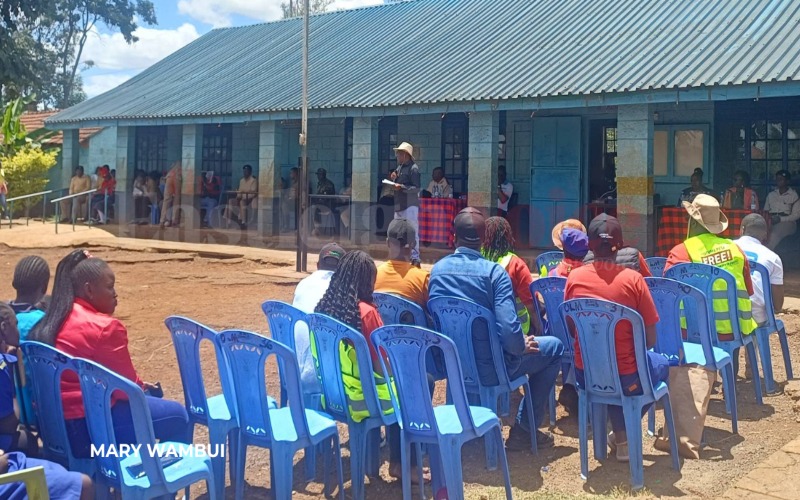House hunting in Nairobi: How to avoid scams, hidden costs and disappointment

From countless site visits and exaggerated listings to hidden costs and misleading photos, finding a decent place to live can feel like a full-time job.
House hunting often begins with hope and excitement, but for many Kenyans, it quickly turns into a draining and discouraging experience. Frustrated by endless challenges, some people choose to stay in their current homes for years rather than face the search again.
From countless site visits and exaggerated listings to hidden costs and misleading photos, finding a decent place to live can feel like a full-time job.
More To Read
- KRA rolls out new eRITS system to simplify rental income tax compliance for landlords
- National Construction Authority warns landlords not to add extra floors to occupied buildings
- Tenants can now sue landlords for withholding deposit refunds - court
- Governor Sakaja announces affordable housing plan for City Hall employees
- The bitter aftertaste, Nairobi tenants and January rent squeeze
“I’ve viewed over fifteen houses in just two weeks,” says Grace Wairimu, a nurse based in Nairobi. “Most of them looked nothing like the pictures. Either the roads were terrible, or the house was next to a dumping site. Or simply the houses are in poor condition, yet the landlord or the agent expects someone to move in as it is.”
Her experience is far from unique, especially in Nairobi’s urban neighbourhoods.
The hustle behind the hunt
As more people move to cities in search of better opportunities, the demand for affordable housing has surged—bringing with it a rise in fake agents, hidden fees, and substandard properties. The result: stressed, scammed, and exhausted house hunters.
“Some agents will charge you a viewing fee, then disappear after showing you one terrible house,” says Joseph Omondi, who has been searching for a one-bedroom unit in Nairobi’s Eastlands area for over a month. “ ‘You just pay the deposit, the person in the house will move out at the end of the month’—I was once told this four months ago. Up-to-date, I am still waiting.”
What to check before saying “yes”
1. Location still reigns supreme
Real estate agents agree that location should be the top priority. A dream home should be in a safe neighbourhood with easy transport access and close to essentials such as hospitals, schools, markets, kiosks, and shopping centres.
“A beautiful house in a poor location is like a luxury car without fuel; it won’t take you far,” says James Mwangi, a Nairobi-based property consultant.
2. Price vs. budget
Experts advise setting a realistic budget and sticking to it. Beyond rent, factor in hidden costs like maintenance, agent fees, garbage collection charges, and utility bills.
“Many people stretch themselves financially, only to struggle with upkeep later,” Mwangi notes.
3. Size and space: think long-term
From one-bedroom flats to four-bedroom maisonettes, size matters—but not just in square footage.
“Don’t just count rooms,” Mwangi says. “Think about how each space will be used, and whether it fits your lifestyle now and in the future.”
Growing families should factor in expansion needs, while those on a tight budget should find creative ways to make smaller spaces work.
4. Features that fit your lifestyle
Today’s buyers often look for balconies with views, rooftop spaces, smart home integrations, and stylish finishes. Orientation also matters—homes facing away from sunlight can lead to higher electricity bills. Select a home that supports, rather than complicates, your lifestyle.
5. Storage
Ample storage is often overlooked.
“Don’t just see them as the closets and kitchen cabinets, and you get comfortable. Put into consideration where you can put extra things like chairs or other things like bicycles or toys when they are not in use,” Mwangi advises.
6. Safety and security first
Ask about security measures, such as guarded gates, CCTV, reliable locks, and neighbourhood watch systems.
7. Road conditions and commute costs
Bad roads can make daily commutes difficult, especially in the rainy season.
Experts recommend viewing properties during both wet and dry seasons to assess road quality and water supply. Also, calculate daily transport costs before committing.
8. Nearby amenities matter
Proximity to markets, schools, hospitals, places of worship, and recreation spaces adds value—but some amenities, like a noisy club, could disrupt your comfort.
9. Parking: A common urban headache
Check for secure, designated parking. If it’s in the basement, is it safe? If it’s outside, is it protected from damage or obstruction?
As the search for ideal homes continues across the city, experts remind Kenyans that a home should be more than just visually appealing—it should be practical, safe, and suited to the resident’s lifestyle.
“It’s not just about falling in love with how a house looks, it’s about whether it works for your life,” says Mwangi.
Top Stories Today













































